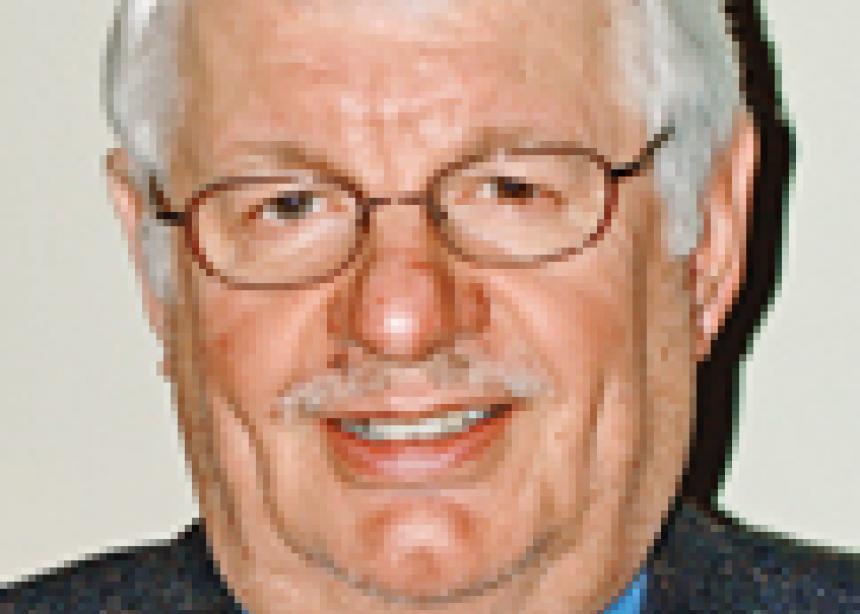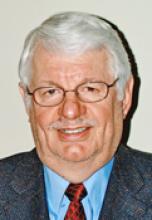Why has “creation care,” as we have come to euphemize an issue that distinguishes our faith-based concern for the environment, risen to the top of our conversation as modern-day Anabaptists?
Let me surmise that, as an historically agrarian people, we have always had a close connection to the earth, sky and air. In our move to the city, our consciences are somewhat smitten with the discomfort of massive concrete and steel rising to the sky; man-made noise of cars, trucks and subway trains; the noxious fumes of CO2 from tailpipes and smokestacks; and little earth into which to sink our fingers.
In today’s world, Joanne Moyer said in a sermon entitled “Blessed are the tree huggers?” last July at Home Street Mennonite Church, Winnipeg, “we live our lives separate from creation. Very few of us raise our own food from the earth. Most of us don’t see the feedlots where our meat is raised. We live in heated and air-conditioned homes, and we don’t see the flooded lands of northern Manitoba when we flip on the light switch.
“We drive cars. We don’t see the tar sand pits or the oil spills when we fill up at the pump or step onto the bus. We wear shoes and rarely touch our bare feet to the ground. How, in this disconnected world, can we know how to act with gentleness and kindness toward our fellow creatures?”
First, I am indebted to Moyer’s wisdom for the thoughts in this editorial and appreciate the contribution she is making as an environmental professional now doing a post-doctoral fellowship at the University of Toronto studying faith-based organizations doing environmental work in Canada.
Second, I must apologize for giving our denomination short shrift when, in an earlier editorial, I lamented that we have been late in coming to this conversation, saying it wasn’t until 2008 that a binational Creation Care Network was formed. Several persons corrected me by saying the Network was preceded by a binational Environmental Task Force created in the early 1990s.
But back to the tree huggers: Basing her thoughts on Psalm 8, Genesis 2:4-25 and Colossians 1:15-23, Moyer highlighted the Psalm passage as God “making us [humans] a little lower than God,” but having boundless power and freedom to do whatever we want; in other words, giving us dominion over the works of God’s hands while putting “all things under [our] feet.”
Dominion does not imply exploitation, however, but stewardship. Citing biblical scholar Walter Brueggeman, she said that “human identity must first and foremost be understood in relation to God. God is the one with the true power, infinite and deserving of praise and glory. But as his representatives, we humans have a special role to play. If we don’t recognize this special place, we then abdicate our responsibility to God to care for the earth.”
Our dominion—not dominance—is bounded by God’s sovereignty. Without this understanding, dominion does indeed become dominance, and ecological disaster can ensue.
And from the Colossians narrative, she highlighted Paul’s characterization of Jesus as the “fullest manifestation of a human being in God’s image, but that he [Jesus] does not grasp after power and might, but lives and rules through obedience and servitude. He came, as is said in the gospel of Mark, ‘not to be served but to serve and to give his life a ransom for many.’ ”
As a self-proclaimed tree-hugger, Moyer struggles with questions: “Should I become a vegetarian? I have not yet done so. How much money and time should I spend trying to consume meat that has been raised and killed in an ethical and humane fashion? How many airplane trips can I justify when I know that one flight creates far more emissions than driving that car I don’t have? Should I be running an air conditioner in my apartment? And how high should I be setting it?
“I don’t have the answers to all these questions, but I know that they are questions that need to be asked. We need to think about the land and water and air that we steward, or that the governments we elect manage. What are we putting into these lands, waters and air spaces? What are we taking out of them? What condition are they in after we do our activities in them? How does this affect the other creatures that inhabit them?”




Comments
It is OIL sands. The definition of tar is "A dark, thick, flammable liquid distilled from wood or coal, consisting of hydrocarbons, resins, and alcohols, and used in roadmaking", it is a man-made product made from wood or coal, it is not the OIL found in the oil sands.
Add new comment
Canadian Mennonite invites comments and encourages constructive discussion about our content. Actual full names (first and last) are required. Comments are moderated and may be edited. They will not appear online until approved and will be posted during business hours. Some comments may be reproduced in print.